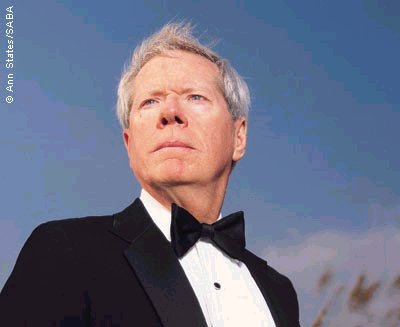 Kourosh Ziabari – It’s an almost undeniable fact that the political power which constitutes the basis of American hegemony is predominantly hinged on the economic superiority and affluence of the nation. According to the United Nations Conference on Trade and Development (UNCTAD), the United States receives the highest Foreign Direct Investment (FDI) among the world countries and this means that it has successfully absorbed an enormous amount of capital and resources from the other parts of the world and utilized them for the sake of its own wellbeing and prosperity. But the bitter reality for the United States is that the late-2000 economic recession, coupled with the aggressive foreign policy of subsequent administrations, have contributed to a sharp decline in the U.S. power from different aspects.
Kourosh Ziabari – It’s an almost undeniable fact that the political power which constitutes the basis of American hegemony is predominantly hinged on the economic superiority and affluence of the nation. According to the United Nations Conference on Trade and Development (UNCTAD), the United States receives the highest Foreign Direct Investment (FDI) among the world countries and this means that it has successfully absorbed an enormous amount of capital and resources from the other parts of the world and utilized them for the sake of its own wellbeing and prosperity. But the bitter reality for the United States is that the late-2000 economic recession, coupled with the aggressive foreign policy of subsequent administrations, have contributed to a sharp decline in the U.S. power from different aspects.
Investigating the economic factors contributing to the solidification of the U.S. political power can reveal many hidden truths that bespeak of the mechanisms that hold together the pillars and pedestals of American hegemony.
Unquestionably, they are the economic indicators that determine whether the United States can make the decision to go to a new war or not. Today, the majority of independent political and economic researchers and scholars think that the United States, at the current juncture, does not have the capacity to wage a new war, especially given that it’s already being immersed in the quagmire of two unsuccessful wars against Iraq and Afghanistan.
Iran Review has conducted an exclusive interview with Dr. Paul Craig Roberts, a renowned American economist, political commentator and the former Assistant Secretary of Treasury in the Ronald Reagan administration. Known as the father of Reagonomics, he is a former editor and columnist for the Wall Street Journal, Business Week and Scripps Howard News Service. Dr. Roberts is an outspoken critic of what President Bush put forward as the War on Terror. He is an opponent of the U.S. military interventions in the other countries in the name of battling terrorism, and has voiced his criticism of the Bush and Obama administrations on various occasions.
Answering our question regarding the emergence of a power balance against the dominant hegemony of the United States, Dr. Roberts said, “I think the question is more hope than reality. The U.S. dollar is the reserve currency. As long as Washington can print or borrow dollars in order to cover its bills, Washington can continue its hegemonic wars. The wars benefit the profits and power of the military/security complex and Israel. Political campaign contributions from vested interests keep the wars going.”
“Despite Washington’s bad behavior, China, Japan, and the sovereign investment funds of the OPEC countries remain content to hold U.S. dollar-denominated financial assets, despite the U.S. central bank’s creation of more than $1 trillion new dollars per year,” he added.
“As long as the world is content to use a currency as a store of value that is being inflated away, Washington can continue to pay its wars and other bills by printing dollars,” Paul Craig Roberts noted.
On the U.S. capability of maintaining the unipolar and hegemonic order, he stressed that “Washington’s unipolar power is evident in Washington’s ability to have the world, or most of it, comply with sanctions that Washington has imposed on Iran. These sanctions are illegal; yet, the world and the UN support them.”
Criticizing the current political order ruling the United States, the former U.S. Assistant Secretary of Treasury said, “Washington is currently murdering people in seven or eight countries, maybe more, without being formally at war with the countries. Washington has established a police state in the United States. All constitutional protections, except the Second Amendment, have been destroyed by the Bush and Obama police state regimes. Americans are the most spied upon and less free people on earth, except for the Palestinians.”
“What is surprising is the lack of resistance to Washington. Last week Washington warned Great Britain not to leave the European Union, as a majority of British people demand, because Britain’s departure would ‘violate the interests of the US,’” he said.
“The British coalition government simply accepted the command of its Washington master, ignored the voice of the British people, and continued serving Washington instead of the British people,” he warned.
But what will the future of our world look like in the light of the U.S. dominance as the world’s number one hegemon and superpower? Dr. Roberts responds: “as long as Russia accepts being surrounded by US missile bases while Washington funds the Russian political opposition, as long as China had rather sell goods to American consumers than to defend its vital political interests, as long as OPEC is willing to bill for its scarce and declining oil in dollars printed by the Federal Reserve in vast quantities, the US will remain the ruler of the world.”
This interview was originally published on Iran Review.
